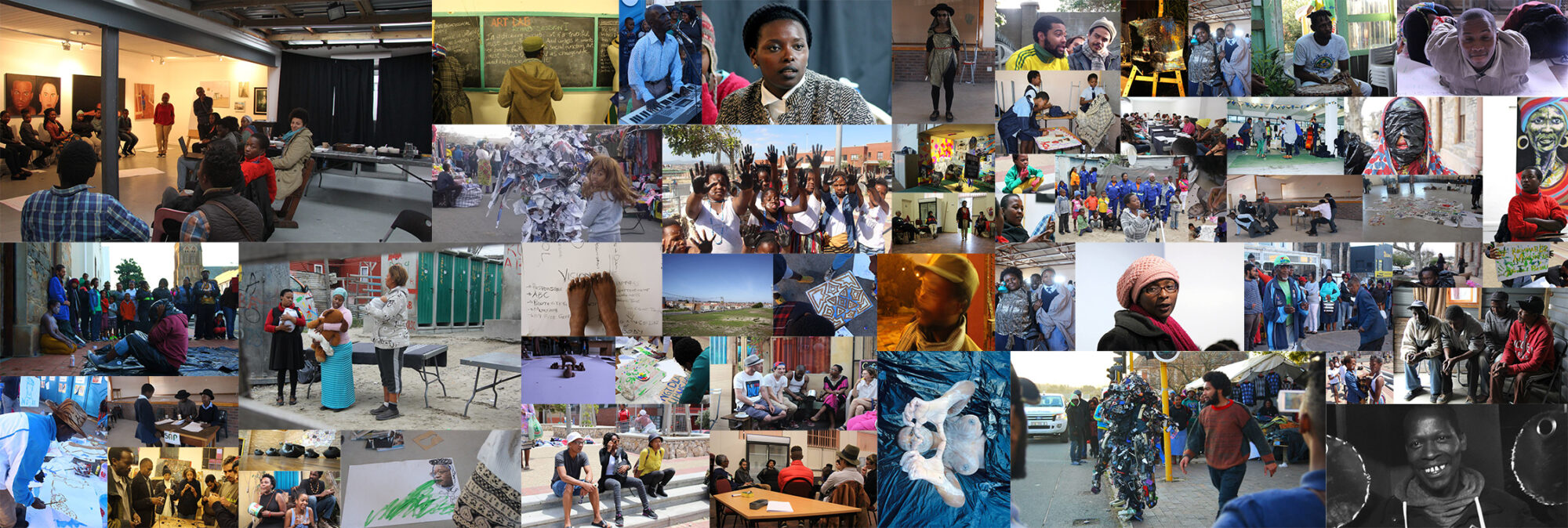Founded in 2014 by Evan Abrahamse and Goitsione Mokou, People’s Education is an association of activists, educators, community workers and artists based in Cape Town, South Africa who are concerned with education in the contemporary African context.
Through collaboration with like-minded individuals and organisations, and based on a principle of putting theory into practice, we imagine an organic intervention into the culture of learning and what it means to learn together in a variety of contexts.
Africa has inherited a colonial education, which socialises and conditions fatalism and conformity, functions to reinforce pervasive inequalities, of which our continental sense of inferiority forms a significant part. Our education continues to leave us ill- equipped in the struggle to throw off this legacy and focus on the tasks at hand.
People’s Education concerns itself with decolonizing education, and sees a meaningful engagement with and use of African knowledges and knowledge-making practices as a key part of this process. Africa needs to build a capacity to realize her own solutions to social issues in her local context.
Taking our cues (and name) from the People’s Education movement founded during the anti-apartheid struggle, the collective engages pedagogical sites such as community workshops, seminars and workplace study circles.
We have defined our activities to mean education activism through pedagogies premised on being “teachers amongst learners and a learners amongst teachers”. This practice is significantly informed by the ideas and work of Paulo Freire:
In order to understand the meaning of dialogical practice, we have to put aside the simplistic understanding of dialogue as a mere technique. Dialogue does not represent a somewhat false path that I attempt to elaborate on and realize in the sense of involving the ingenuity of the other. On the contrary, dialogue characterizes an epistemological relationship. Thus, in this sense, dialogue is a way of knowing and should never be viewed as a mere tactic to involve students in a particular task… I engage in dialogue not necessarily because I like the other person. I engage in dialogue because I recognize the social and not merely the individualistic character of the process of knowing. In this sense, dialogue presents itself as an indispensable component of the process of both learning and knowing.
We are also in agreement with Dr Bibi Bakare-Yusuf that a conscious effort towards a culture of African knowledge making is essential to our well-being:
What is required… is a programme of genealogy that raids the textual and oral archives of our different African histories in order to demonstrate plural forms of existence. By opening up a disruptive collective historical imaginary, we can unlock ourselves from the repressive power regimes of the present, in favour of a liberatory future. Change for the future only begins when we change the way we are able to look into the viscera of our past. We must begin to disinvent the reified traditions that bind us into mutually destructive… relations. Habit must be rebalanced in relationship to innovation and creativity by searching into the past for alternative ways of being and doing.
We are interested in working beyond institutionally mediated ways of thinking and acting on education. We are motivated to create an African education that centers where we come from and where we now stand, so that we are enabled to imagine and build for the future.
